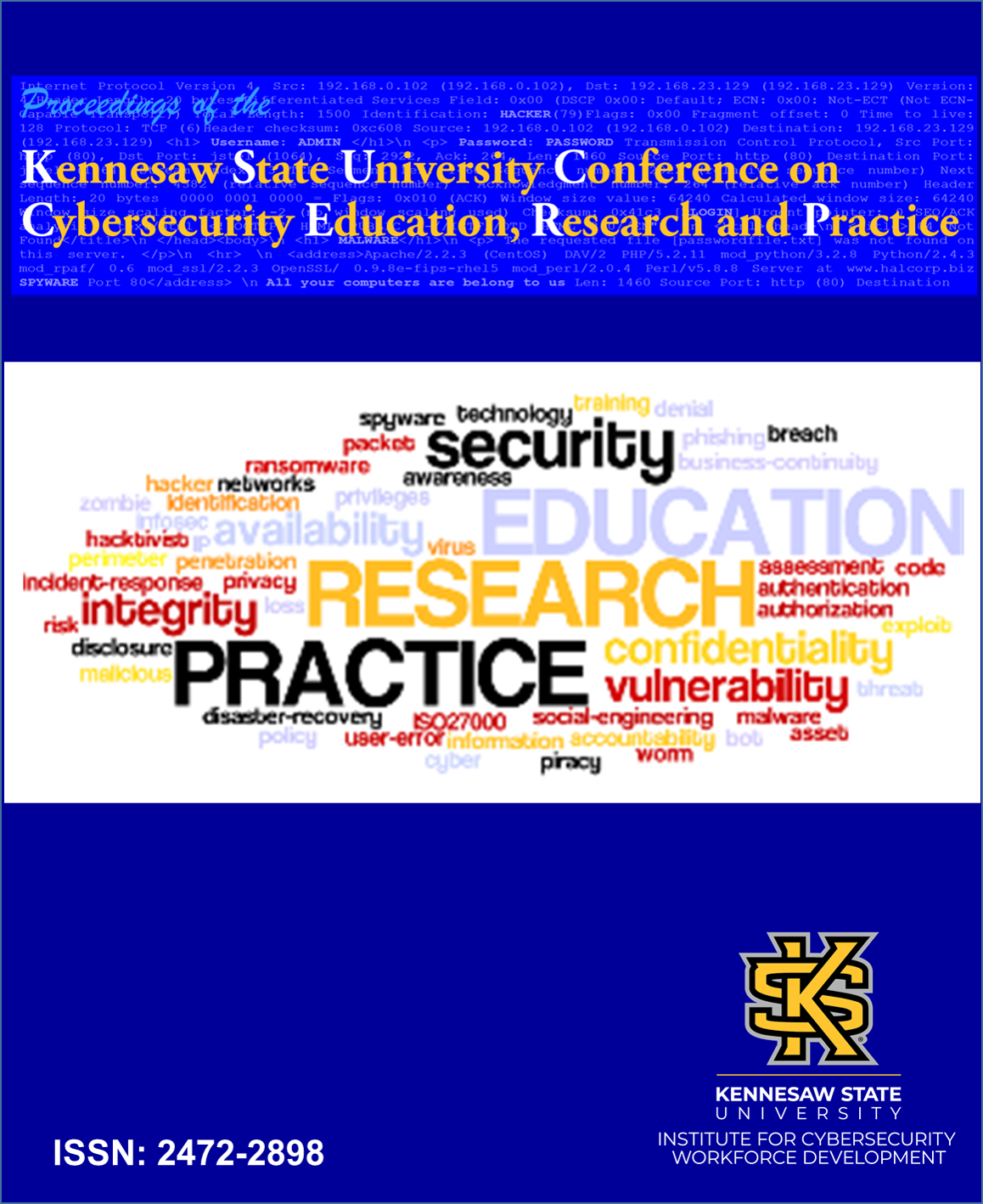Exploring the Influence of Speech Acts on Persuasive Communication of Information Security: A Cross-cultural Study
Start Date
October 2018
End Date
October 2018
Location
KC 460
Abstract
Insider threats remain one of the biggest concerns for organizations. Applying persuasive messages to motivate employees to engage in compliance behaviors is a common approach. A fear appeal is a persuasive message that arouses an individual’s fear of a potential threat in order to produce a recommended behavior. However, the effectiveness of fear-based messages is still inconclusive and unsatisfactory. Speech Act Theory asserts the processes that are considered to influence the effectiveness of a persuasive message. These processes, have not yet been employed and tested in information security research. Hence, we propose an investigation of the influence of speech acts on persuasive communication of information security. We will collect data from organizational employees in the USA and in China, employing the scenario-based factorial survey method (FSM) to present respondents with various situations regarding IS violations. Speech act variations will be manipulated to explore the impact of this factor on the effectiveness of fear appeals to improve cybersecurity behaviors.
Exploring the Influence of Speech Acts on Persuasive Communication of Information Security: A Cross-cultural Study
KC 460
Insider threats remain one of the biggest concerns for organizations. Applying persuasive messages to motivate employees to engage in compliance behaviors is a common approach. A fear appeal is a persuasive message that arouses an individual’s fear of a potential threat in order to produce a recommended behavior. However, the effectiveness of fear-based messages is still inconclusive and unsatisfactory. Speech Act Theory asserts the processes that are considered to influence the effectiveness of a persuasive message. These processes, have not yet been employed and tested in information security research. Hence, we propose an investigation of the influence of speech acts on persuasive communication of information security. We will collect data from organizational employees in the USA and in China, employing the scenario-based factorial survey method (FSM) to present respondents with various situations regarding IS violations. Speech act variations will be manipulated to explore the impact of this factor on the effectiveness of fear appeals to improve cybersecurity behaviors.


